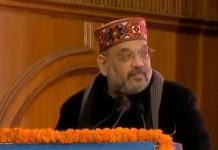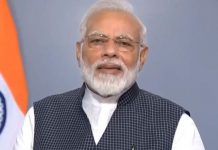 With the passing away of writer Ved Mehta, I can only say that we have lost not just a great writer but also a man with a definite personality. I had met him twice and interviewed him once around the autumn of 2009, when he had flown down to New Delhi with his wife, Linn Cary — a descendant of the 19th century American writer James Fenimore Cooper.
With the passing away of writer Ved Mehta, I can only say that we have lost not just a great writer but also a man with a definite personality. I had met him twice and interviewed him once around the autumn of 2009, when he had flown down to New Delhi with his wife, Linn Cary — a descendant of the 19th century American writer James Fenimore Cooper.
He came across as not just straight forward but also blatantly stark in his views. And though a meningitis attack had left him visually impaired at the age of 4, yet he looked so very confident, full of life. Remarkably, he didn’t let this setback of impaired vision, come in way of his writing. Author of over 30 books along with several long and short stories, not to overlook the fact that for over three decades, 1961-1994, he was a staff writer at The New Yorker. Above all, he lived life to the fullest. Along with exceptional inputs and outputs to his professional life, there were those ample steady splashes to his rather unconventional and colourful lifestyle, till of course, the time he’d decided “to settle down”. Marrying in 1983, at the age of 49, along the strain of Aristotle’s philosophy that for a marriage to be happy and going, a man must marry a much younger woman.
During the interview with me, he detailed, “I married late when I was 49 years old. And Linn is almost 20 years younger to me. Actually Linn is a friend’s niece and I had first met her when she was 11 years old. And years later I had met her again at a party. This time I was drunk and kissed her. The very next morning I wrote an apology note to her and she told me that from her side too, there were feelings involved. It is then we decided to marry and we married in 1983 and today she is my one and only wife and we have two daughters.”
He had stressed on the fact that knowledge of our historical past is very significant. To quote him, “I feel our history is very important for today’s generation. People who live without history are no better than animals …history is important as it adds a dimension to life, just as children and wife add that extra dimension to a man’s life.”
Though based in America, he was extremely critical of America’s intrusion in Afghanistan and beyond. To quote him on this, “America should get out of Afghanistan. And Iraq was a total disaster, totally a fantasy of a kind, along the lines of the US did in Vietnam and Korea. I’m for non-violence and all for the policy of tolerance. And I do also believe in Aristotle’s philosophy vis-a-vis democracy: you can only have democracy if a majority of people belong to the middle class.”
Ved Mehta was also extremely apprehensive of the Right-Wing coming to power in India. He was worried that divisions and communal rifts between communities would be brought in, and that in itself would spell disasters for the masses of this country.
♦ ♦ ♦
WHERE ARE BOLLYWOOD STARS AND STARLETS!
Where are the Bollywood stars and starlets who played the role of farmers! I do realize they were make-believe portrayals, more along the fairy tale strain. What, with them singing and dancing in and around lush green fields and meadows and forests, if not bathing in the various streams and rivers and village ponds!
My logic is simple and straight: As those countless filmi characters gained popularity because of their farmer roles, so they ought to come up with a word or two on today’s farmers and their plight. If the likes of Manoj Kumars and Dilip Kumars could go up the graph by singing and dancing in the village locales, then this is the time to stand up in solidarity with the farmers. Maybe their health conditions wouldn’t permit them to reach out to the protesting farmers in that whole- hearted way but their families could definitely do so.
In fact, it’s more than disappointing that none of the well-known Bollywood men and women have come forward and spoken out. Why? Is this because they have little time or the required inclination or are they worried about the reactions of the political rulers of the day and the machinery under their control!
I’m stating this because though many amongst us spoke out against the political masterminds of the Gujarat pogrom of 2002, but Bollywood had disappointed. Few dared to speak out against the killings and carnage. Why didn’t the big names and bigger banners of Bollywood take on the political rulers of Gujarat? Their answer was as stark as this: If we had reached out to the dying and near-dying victims of the pogrom, we would have been in the ‘bad books’ of the government and our films would be targeted and with that we ruined!
Well, such is the reality! Such scare of the aftermath.
♦ ♦ ♦
And whilst on Bollywood, awaiting to hear the news of the birth of Kareena — Saif Ali Khan’s second baby. Wonder what name they’d give the new baby. Can’t get over the distasteful comments, to say the least, passed by the various Hindutva characters when Kareena and Saif Ali Khan had named their son Taimur.
In fact, nobody tried to speak out or for that matter even squeak that there’s another dimension to Taimur, the conqueror: following Taimur’s invasion of North India in 1398, over 1,700 woodcarvers, architects, calligraphers and highly-specialized cooks — wazas — had migrated from Samarkand to Kashmir. Even today, a great majority of the Waza families in the Kashmir Valley trace their origin to Samarkand and these wazas are in great demand for the wazwan feasts. Not to be overlooked the fact that the ‘feast of feasts’, the wazwans, are hosted by both the communities —the Kashmiri Pandit and the Kashmiri Musalmaan.
ON SHAHRYAR’S NINTH DEATH ANNIVERSARY …
On poet — writer — lyricist Shahryar’s upcoming death anniversary (he passed away on February 13, 2012 ) I am not putting in any of his verse, though his lyrics in ‘Umrao Jaan’ and ‘Gaman’ are of the everlasting sorts.
Well, instead of his verse, I’m highlighting his sense of observation cum humor…. He was from my father’s ancestral qasba, Aonla, in Uttar Pradesh and he knew my younger sister, Habiba, also settled in Aligarh. But I came to know of his Aonla and Aligarh connection only after I was first introduced to him almost two decades back. A common friend introduced us, with this introductory line:
“She is Habiba’s sister.”
To that he reacted, “You Habiba’s sister!”
Yes, I am …she’s my younger sister.
“But you look different! So different! You two real sisters! She covers her head but
you …” with that he gave a rather disapproving look at the sleeve-less shirt on me.
Yes, we are real sisters.
“From the same father?”
Yes, of course.
“Same father?”
Yes …yes.
“Same father!”
At least this is what amma told us!
With that we had a hearty laugh.
letters@tehelka.com












